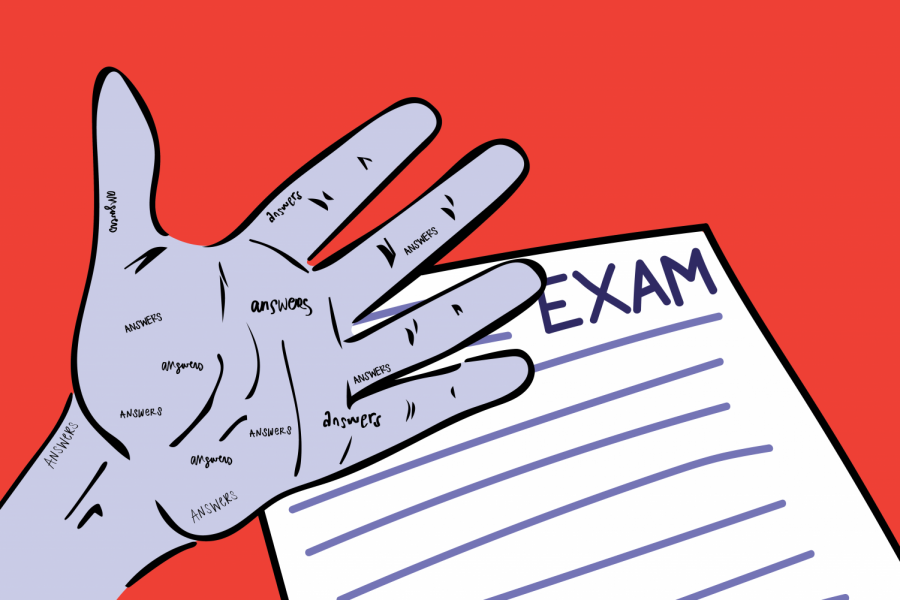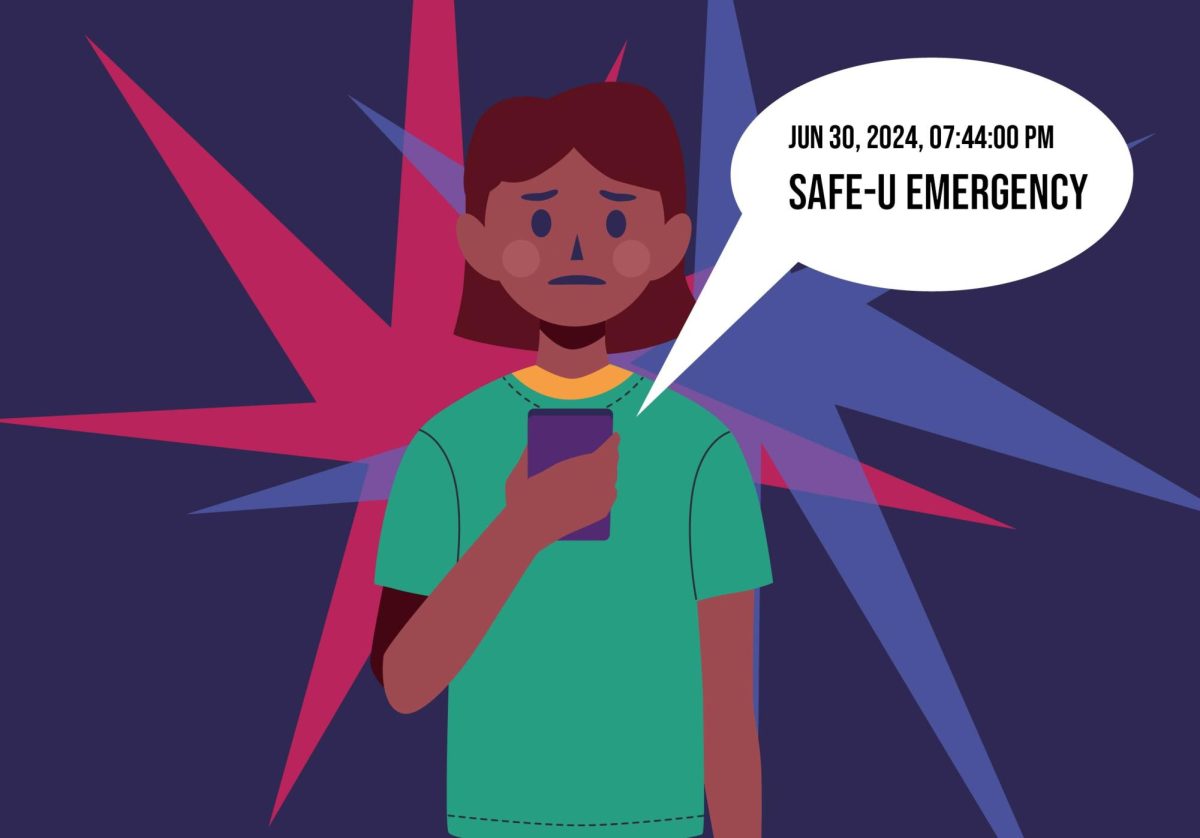The University of Minnesota has seen an increase in reported instances of scholastic dishonesty over recent years, prompting concern among faculty and administrators that this academic year could see even more as a result of online-only learning.
The Office for Community Standards (OCS) has cited an increase in reported incidents of cheating during the last school year. Although this academic year has not topped the 2019-20 reports, as of Feb. 10, 2021, the amount has nearly met the total reported incidents for the entire 2017-18 academic year.
One major way students are cheating is through the use of tutoring websites, like Chegg and Course Hero, to find answers to tests and quizzes, said Sharon Dzik, director of the OCS.
Dzik anticipates that the 2020-21 school year’s reported incidents will eventually exceed last academic year’s numbers.
Not all cheaters are necessarily being caught, however, said associate director of the OCS, Katie Koopmeiners.
“We know the real number is so much higher,” Koopmeiners said. “A lot of times either faculty don’t report even though they’re supposed to, or they’re not catching it or they feel like they don’t have enough evidence, so they’re not reporting it. … We know that incidents of scholastic dishonesty are being underreported on campus.”
The University has started working with Chegg to find students who are cheating online, which includes students sharing or taking information from tutoring websites, she said.
“Chegg will work with our office to identify students who are posting or looking at questions like exam questions when they’re not supposed to,” Koopmeiners said. “So, if a student is signing up with their U of M email, we get that information. Or we can research their IP address. We can work with IT security on campus to find out who the student is.”
When it comes to science and math courses, students who cheat often copy directly from online sites to find answers, Koopmeiners said. Lecturers can find misconduct by noticing students who use methods on exams that were not covered in class or if multiple students have identical answers.
For students in writing classes, graders can sometimes spot cheating if they notice students turning in assignments with substantial quality differences. This can be the case when students pay someone else to write an essay for them, an available function on some tutoring websites.
Students who post their materials onto online tutoring websites can also face consequences if others use their posts to cheat on exams, essays or quizzes.
“I would certainly say the pandemic contributed to the rise in scholastic dishonesty. I also think the word has gotten out about … these ‘tutorial sites’ and more students are accessing prohibited materials which has also played a role,” Dzik said in an email to the Minnesota Daily.
Students may not even realize they are taking part in cheating by sharing their past exam and quiz materials online, Dzik said.
Under University policy, most professors tend to own the material they develop for a course, according to an emailed statement from the University. Members of the administration, including Dzik, are creating messaging to inform students about this policy and the rules around spreading material online.
Regardless of a student’s intent, copying materials from these sites violate the University’s conduct code.
“I think they’re really deceptive,” Dzik said regarding the tutoring sites. “What they’re essentially doing is often setting a student up to … cheat. And sometimes the students, I don’t even think, realize that they’re sort of being duped into believing that it’s a study site versus a cheating site.”
Students who accept responsibility for cheating can choose to participate in the Academic Integrity Matters (AIM) program to change their disciplinary records. The program can be different for each student but may include completing online time management modules or apologizing to their professors, said Koopmeiners, who coordinates the program.
According to Koopmeiners, AIM has seen an increase in students using the program this year. The program is on track to have 99 AIM meetings this year, up from 67 meetings last year.
“This pandemic has brought out a lot of stress. Students who may not have had a lot of experience with online courses are now forced to do all of their courses online. We have students in different time zones who are getting up in the middle of the night to complete their classes,” Koopmeiners said. “So I think that there’s a lot of issues at play here, but I do think stress and pressure comes, you know, I think that’s probably the main reason.”
The University is not alone. Other schools nationwide have reported increases in student cheating, including Texas A&M University.
The chair of the Student Academic Integrity Committee (SAIC), Kenneth Leopold, said he was not surprised to see an increase in cheating during the pandemic. SAIC is a group of students, faculty and staff who advise the University administration on academic integrity.
“The pandemic has been difficult for everyone. By saying so, I certainly do not mean to condone or justify cheating. I’m just saying that unfortunately, hard times can sometimes make people compromise their own principles,” Leopold said in an email to the Daily.
For students struggling with course material, there are resources available at the University, including Student Academic Success Services and Student Writing Support.
“A university degree ought to be backed by substance. Cheating undermines learning and therefore dilutes the substance. Some may say that they only cheat in courses they’re required to take but don’t care about,” Leopold said in the email. “As someone who has been in academic settings since the 1970s, I can tell you that you never know what facts or ideas from your past will pop up and become significant. Cheating just reduces the depth of knowledge and experiences one has to draw from later on.”



























CapnRusty
Mar 12, 2021 at 9:40 pm
I didn’t assume anything about you that you didn’t reveal in your comment. You, on the other hand, had the arrogance to assert that I don’t have any “authority” regarding studying hard. The consequence of that attitude generated the tone that I’m using, which seems to upset you. I suggest you count this as one of many opportunities you will have outside the university from which you might learn. Oh, and nobody cares much about your “feelings.” Good luck.
CapnRusty
Mar 12, 2021 at 3:00 pm
Congratulations on making your first comment on Disqus. You’re off to a bad start, questioning the authority of someone who has years more experience than yourself. I hold a post-graduate degree. At no time during my undergrad or post-grad education did I think it was the responsibility of the institution to “set me up for success.” That was my responsibility. If you and the author of the article think otherwise, you’re in for a hard landing when you fall out of the ivory tower.
ceeg
Mar 12, 2021 at 7:15 pm
Hey man, I feel like you’re making some assumptions about my life and the author’s without knowing either of us. Also from your tone, it seems like you’re looking for an argument. Just wanted to advocate for myself and my peers; it’s alright if you disagree
ceeg
Mar 12, 2021 at 2:20 pm
If you’re really a “long-term resident”, I don’t think you have any authority on the difficulty of attending college during a pandemic or the oc’s studying experience. I spend 55-60 hours a week studying and attending lectures and discussions, and I know I’m not an outlier in that experience. Please never assume or imply that the college life is easy, especially in a pandemic.
CapnRusty
Mar 11, 2021 at 2:16 pm
Being a long-term resident in “the real world,” I would advise you that if you think your university world is in any way, shape or form more stressful or difficult than the real world, you are in for a rude awakening.
Taya Hawks
Mar 11, 2021 at 1:56 pm
Honestly, the real issue is that the colleges are not actually thinking about a reasonable class load and setting students up for success in individual classes. The pandemic has heightened this issue too. Colleges, by and large, don’t care about individual students having reasonable course/ course work loads and push shorter deadlines that frequently stack up, there is also more and more focus on tests and that leads to high stress/ low knowledge retention situations that make people care more about the grade in the class rather than actually learning. If anyone actually wants to limit this issue, they don’t need to be working with study sites, they need to work with actual students to balance course loads and work loads, as well as functioning more like the real world.